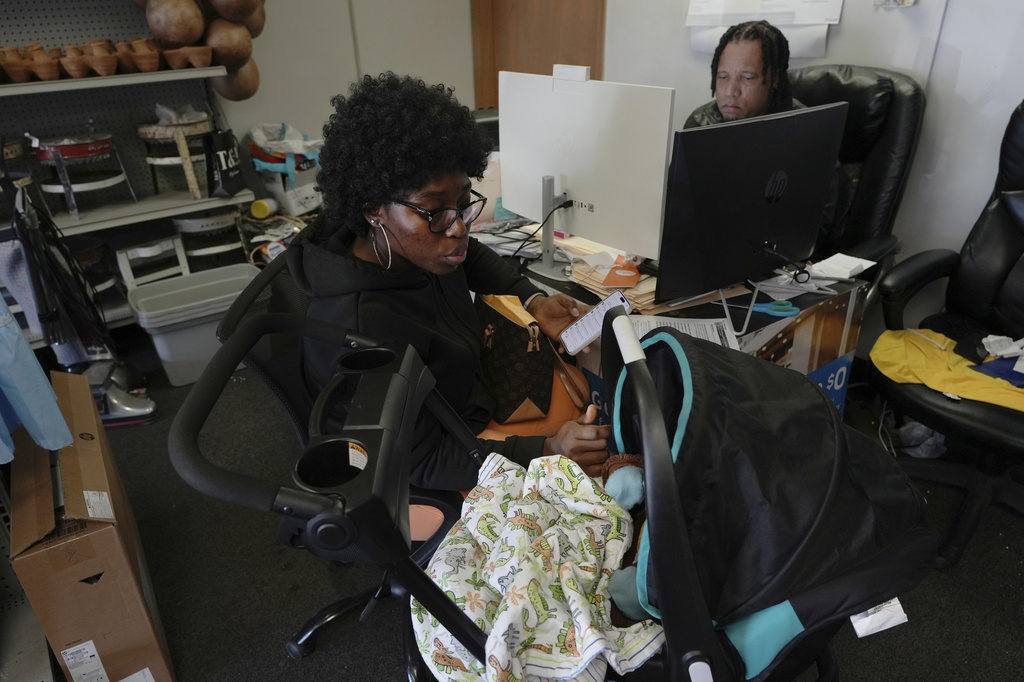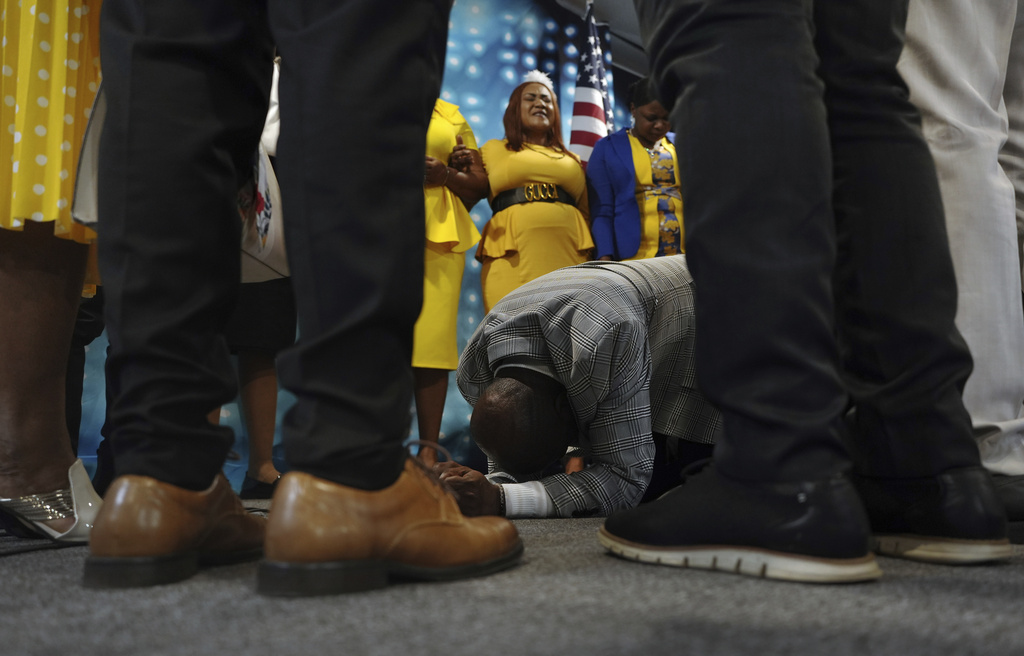SPRINGFIELD, Ohio (AP) — At the end of his Sunday service, the pastor of the First Haitian Evangelical Church of Springfield, Ohio, asked ushers and musicians to form a circle around him as he knelt in prayer, flanked by the flags of Haiti and the United States.
Many had come to receive his blessing and hear his guidance on how to deal with federal agents in case of raids stemming from President Donald Trump's crackdown on immigration. Other congregants stayed home out of fear and growing uncertainty.
“I asked God to protect my people,” the Rev. Reginald Silencieux said after the service, reflecting on his final prayer. “I prayed especially for the Haitian community, and I prayed for U.S.A. too, because Trump is our president. As a church, we have an obligation to pray for him because he’s our political leader right now.”
Some of Springfield's estimated 15,000 Haitians are seeking solace and divine intervention in their churches or at shops that sell spiritual products. Community leaders say many are overwhelmed by fears Trump will end or let expire the Temporary Protected Status program that allows them to remain in the U.S. legally.
“The community is panicking.” said Viles Dorsainvil, the leader of Springfield's Haitian Community Help and Support Center. “They see the arrests on TV in other parts of the country and they don’t know what’s going to happen.”
“The majority of immigrants in the U.S.A. are not criminals, and they’re hard-working people,” he added. “Any administration with common sense would rather work with those kinds of immigrants than deport them.”
“Now, there’s a fear of deportation. That keeps a lot of people from going out and has caused a lot of people to have left,” he said, pointing to the usually busy commercial plaza where his business is located and that was now more quiet than usual.
Between selling religious candles and spiritual ointments, Payne guided customers with immigration forms, employment authorization cards and questions on their TPS applications.
Brutus Joseph, 50, who works installing solar panels, said he came to the botanica to find spiritual relief. But he also wanted to speak his mind.
“I don’t feel right at all. I have a lot in my chest,” Joseph said in Creole through an interpreter. “My wife and I can’t even sleep because we’re so worried. We’re law-abiding citizens — all we did is to be Haitian. We didn’t think we’d be treated like this by the (Trump) administration. I’m praying to God that the president changes his mind.”
Joseph especially worries about the future for his five children, including one who is a senior in high school in Springfield and plans to attend college this year.
“If I leave here, there’s no future for my children. My children can get raped and killed if I go back, so I have everything to lose," he said, making an appeal to Trump as a fellow family man who is married to an immigrant.
The Rev. Philomene Philos, one of the pastors at the First Haitian Evangelical Church, bemoaned the lower-than-usual attendance at Sunday's service.
“They don't have to be scared. They have to be alert," he said. "They shouldn't be scared to the point where they don't come to church.”
The migration concerns of clergy and other community members in Springfield are shared by many faith leaders nationwide. In several cities, including New York, Philadelphia and Portland, Oregon, interfaith groups are discussing how to provide security and support to migrants in their communities, including those who are undocumented.
Thousands of temporary Haitian migrants have legally landed in Springfield in recent years under the TPS program, as longstanding unrest in their home country has given way to violent gangs ruling the streets.
“Everything changed because Trump is president. People are scared right now. Most are staying in their homes — they don’t want to go outside,” said Romane Pierre, 41, who settled in Springfield in 2020 under the TPS program after fleeing violence in his native Haiti.

“I love my country, but you can’t live there; it’s terrible right now,” said Pierre, who works at the Rose Gaute, a popular Haitian restaurant in Springfield. “So where do you go back to?”
Last year, his 8-year-old daughter got ill in the middle of the night. Gunshots rang in their neighborhood in the capital of Port-Au-Prince, and her mother felt it was too dangerous to take her to the hospital. She died in the morning in front of the hospital entrance. Pierre couldn’t get a permit on time to return for her funeral.
“Sometimes, life is difficult,” he said pensively on a break from work.
The TPS, which allows him and thousands of others to remain legally in Springfield, expires on February 2026. He still hopes Trump will keep in mind the violence in Haiti and renew it.
“Think about Haitians because Haiti is not a place to return to right now,” he said. “God, talk to Mr. Trump and do something for Haitians.”

The migrants' fears were echoed by the president of Haiti’s transitional presidential council, who said the Trump administration’s decisions to freeze aid programs, deport migrants and block refugees will be “catastrophic” for Haiti.
Leslie Voltaire made the comment in an interview with The Associated Press in Rome on Saturday following a meeting with Pope Francis at the Vatican.
The pontiff and Voltaire discussed the dire situation in Haiti where gangs have killed civilians and operate across the Caribbean nation with impunity. Half of Haiti’s 11.4 million people are already hungry, according to Voltaire, and losing humanitarian assistance will make the situation dramatically worse.
___
Associated Press religion coverage receives support through the AP’s collaboration with The Conversation US, with funding from Lilly Endowment Inc. The AP is solely responsible for this content.
